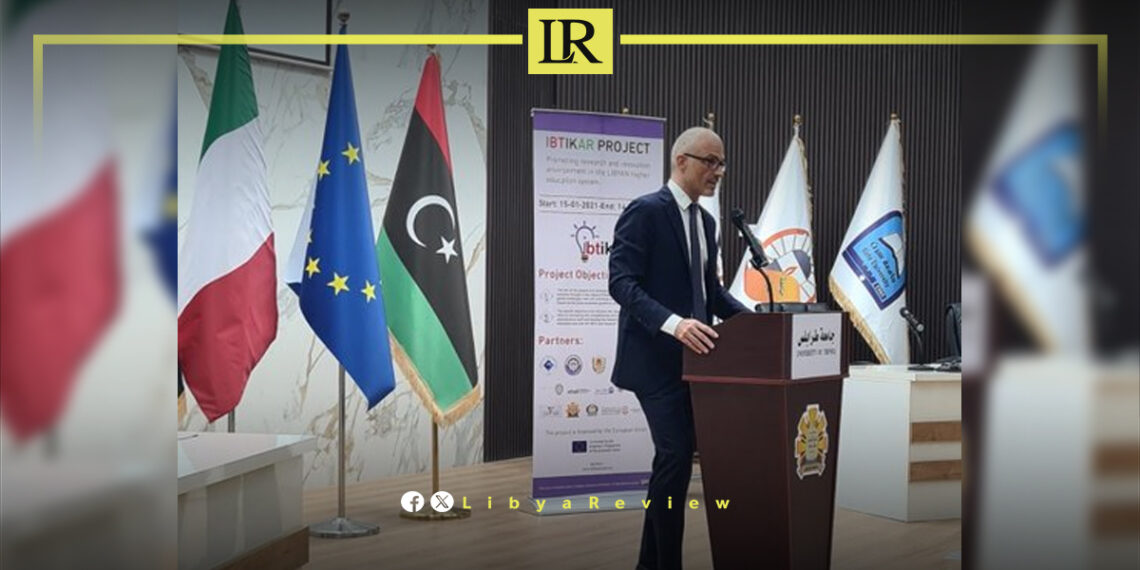Nicola Orlando, Head of the European Union Delegation to Libya, announced the conclusion of the “Innovation” project, a three-year initiative aimed at enhancing higher education and scientific research in Libya.
In a post on X, Orlando expressed his honor in concluding the project alongside the President of the University of Tripoli, Professor Mohamed Aoun, and the General Director of the Union of Mediterranean Universities, Marcello Scalisi.
Orlando added, “We look forward to strengthening our cooperation with the Ministry of Higher Education and universities across Libya to boost joint research, facilitate mobility for faculty and students, and foster academic exchange with their European counterparts.”
Libya has been in chaos since a NATO-backed uprising toppled longtime leader Muammar Gaddafi in 2011. The county has for years been split between rival administrations.
Libya’s economy, heavily reliant on oil, has suffered due to the ongoing conflict. The instability has led to fluctuations in oil production and prices, impacting the global oil market and Libya’s economy.
The conflict has led to a significant humanitarian crisis in Libya, with thousands of people killed, and many more displaced. Migrants and refugees using Libya as a transit point to Europe have also faced dire conditions.
The planned elections for December 2021 were delayed due to disagreements over election laws and the eligibility of certain candidates. This delay has raised concerns about the feasibility of a peaceful political transition.
Despite the ceasefire, security remains a significant concern with sporadic fighting and the presence of mercenaries and foreign fighters. The unification of the military and the removal of foreign forces are crucial challenges.


